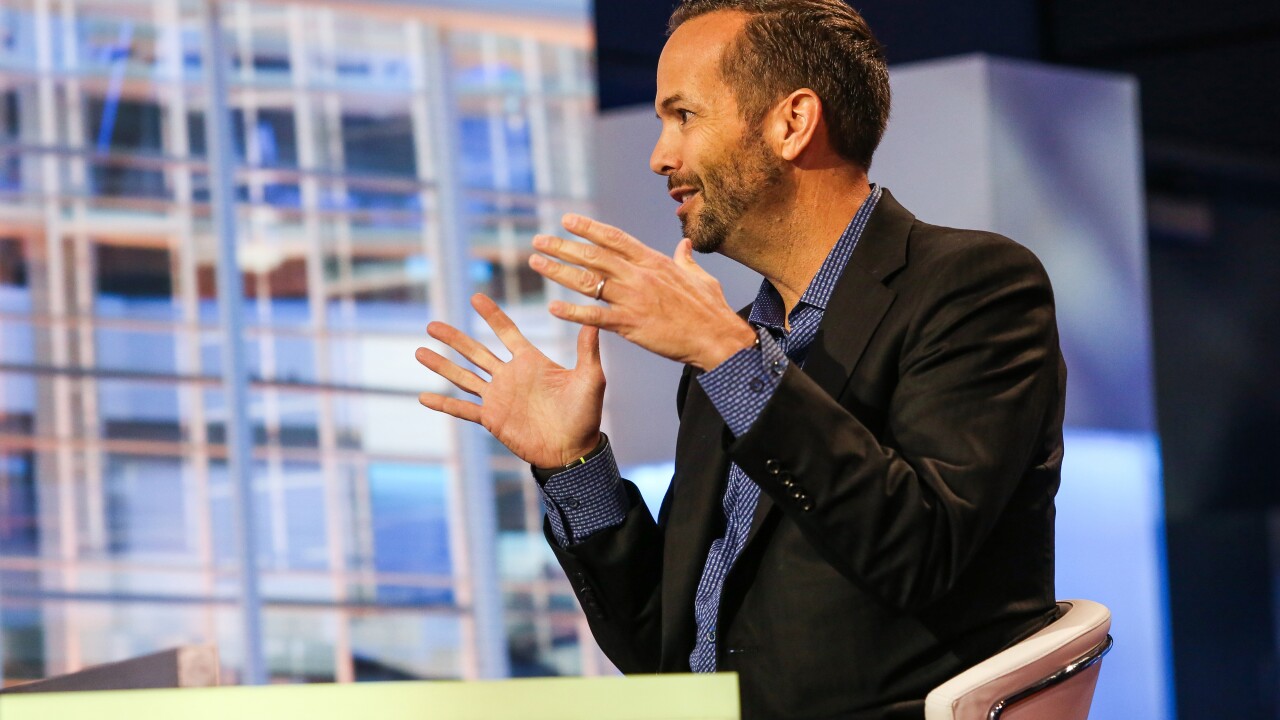BOSTON - Citicorp is developing a computer imaging system of unprecedented scale and sophistication in order to combat credit card fraud, chairman John S. Reed said in a speech here.
The system, which Mr. Reed said the bank plans to install within a decade, would transmit digitized pictures of customers from Citicorp computers to merchants' point-of-sale terminals.
"If you stole that card, your picture is not going to match - and the person in the checkout counter of the store is going to see it," Mr. Reed said in a keynote speech at Enterprise '93, a computer conference.
Already Assembling Images
Mr. Reed said that the new fraud deterrence system will take advantage of the bank's current effort to put computer-generated images of customers on Citibank credit cards.
To build this system, Mr. Reed said, Citicorp will have to drive "tremendous" improvements in technology that stores pictures in digital form, "compresses" them so they eat up a minimal amount of computer storage space, and transmit them quickly and cheaply over communication lines.
But the development costs will be worth it, he said, since the computer system will cost less to build than what Citicorp loses from fraud. He did not specify how much the bank will ultimately spend on the project.
Jerome Svigals, a banking consultant based in Redwood City, Calif., said that storing customers' pictures centrally and then transmitting images to merchants could cut down on costs of printing pictures on the cards themselves, which on average are reissued every two years.
Mr. Svigals said Citicorp would probably find other uses for the images. "I'm sure they'll have tellers be able to call up a customer's picture for something like verifying a cashed check," he said.
Mr. Reed said the imaging system is but one example of cost savings that can be derived from employing advanced technology. He said technology investments are a key part of Citicorp's plan for growing profits at a time when the world economy is "in a refrigerator" and revenues are flat.
Sees Costs Being Halved
Mr. Reed said that "it is our belief' that Citicorp can use "modern systems" to eventually cut by half its $9.3 billion of annual operating costs.
Productivity improvements and cost savings will come from "reenginering" what Mr. Reed called business systems, using "on-line, distributed technology" to change the way people work.
To this end, Mr. Reed said that Citicorp "will outsource substantial activity from the bank." He did not specify what operations the bank may turn over to ouside vendors. The company last month handed off a small part of its credit card portfolio to a third-party processing firm.
Mr. Reed added that Citicorp will move foreign computer operations back to the United States, which, in his opinion, is the best, most cost effective country in the world in which to run large data processing operations.
As a result, Mr. Reed said, he "bets" that over the next five years Citicorp will consolidate in the United States computer operations now handled in regional computing centers in Germany and the United Kingdom.
Eventually, a similar migration of computing operations from Singapore to the United States may take place.
Modernization Planned
Mr. Reed said that the German data center handles consumer banking operations for Europe, while the United Kingdom center handles wholesale banking operations. The Singapore facility handles much of computing chores for Citicorp's Japanese operations.
He said that Citicorp operates more than 300 computer centers around the world, each running more than two million lines of software code. Mr. Reed said that all of this code will have to be thrown out and replaced with more modern systems in 5 to 10 years.
Mr. Reed emphasized that Citicorp is committed to delivering bank products to easy-to-use telephone-like computing devices, a statement of support for the bank's long-tested, but still not generally available Enhanced Telephone, a screen-based telephone banking product.
But Mr. Reed added that Citicorp will only deliver bank services to these devices by "partnering", with other companies.
Mr. Reed said that Citicorp's burgeoning business in trading derivative instruments will force it to continue to invest in "electronics" to enable the large number of "physicists and mathematicians" working on complex investment products for the bank to do their job.
Brian Tracey contributed to this report.





